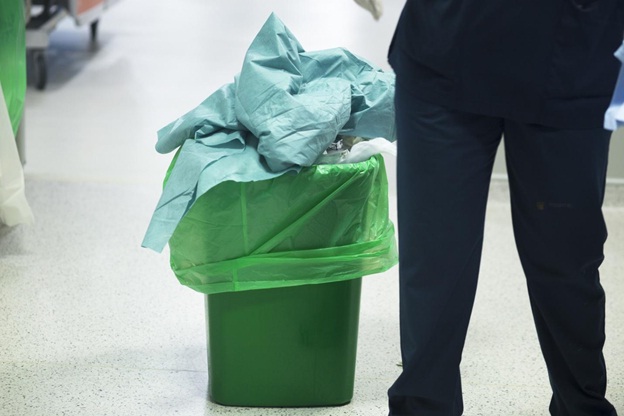How Hospitals Are Reducing Their Rubbish Clearance In Landfills
Hospitals produce a lot of rubbish clearance, especially given all the disposable waste removal they have! Therefore, is it a really good sign that hospitals are beginning to take their social obligations of keeping their rubbish clearance out of landfills seriously. Many hospitals around the world are actively developing plans to divert their rubbish clearance from landfills and use more sustainable practices of rubbish clearance.
One of the most important steps for hospitals is to consciously make an effort to purchase products that are 100% biodegradable. Luckily, many supplies used at hospitals such as scrubs and various bedside supplies are made from cellulose fibres that are already biodegradable. Of course, if these biodegradable products are still sent to the landfill, it defeats the purpose of them being biodegradable. Thus, many hospital administrators are finding ways to get these biodegradable waste streams to an appropriate rubbish clearance processor that can handle biodegradable waste removal outside a landfill.
Hospitals can also take a look at packaging and food containers. For example, otherwise recyclable coffee cups can't be recycled if they have a non-biodegradable plastic liner. However, if the hospitals switch to using cardboard cups lined with corn starch or sugar cane materials, they become fully biodegradable. Since hospitals do such a high volume of buying, purchasing decisions like this could make a significant difference in the amount of rubbish clearance that could be biodegraded and kept out of landfills.
The biggest solid waste stream for most hospitals is PAPER! If you've even been hospitalized, or been to the hospital with a family member, you'll have some idea of why! There always seems to be stacks of information on paper and forms to sign for every thing you do in a hospital. You may even be tempted to bring your portable file with you you get handed so much paper. In one survey of California hospitals, it was found that 53.8 percent of all solid waste was paper.
Paper that goes to landfills rots because it gets compacted down into dense areas with no oxygen. This rotting paper produces methane gas that escapes into the atmosphere and contributes heavily to the greenhouse effect. However, if that same paper can be taken to a recycling center, it can be repurposed into other paper products without it producing all that methane. Therefore, hospitals should strive to do two things:
1. Try to go paperless whenever possible.
2. Send their paper rubbish clearance to paper recycling centres rather than landfills.
It would be a more than fifty percent improvement in the social responsibility to our society to become more sustainable and keep their rubbish removal out of the landfills if hospitals would do these two things with regards to their paper waste.
Here's another exiting waste management change happening at some hospitals that hopefull will catch on.
Currently, five hospitals in the Netherlands have installed their own anaerobic digesters, called the Pharmafilter system. It anaerobically digests, in an oxygen free environment, all their biodegradable rubbish clearance, including their hazardous biowaste, like bloody bandages and used syringes.
The waste removal is transferred away from individual hospital wards through sewer pipes. It is then shredded and treated. The liquid waste is then separated from the solid waste. The liquid waste is where the infections bacteria and discarded medicines reside. This liquid is then filtered and treated chemically on the hospital grounds so it is no longer contains any hazardous materials.
As the solid rubbish clearance is anaerobically digested, it produces a methane gas that can be captured and converted to energy. This powers the hospitals and all the leftover energy from this ingenious process is fed into the power grid for the nation.
It seems too that hospitals might benefit from partnering with private rubbish clearance companies that already purposefully divert as much of the waste they pick up away from the landfills. Local councils simply haven't caught up with the latest technologies for recycling waste and end up taking biodegradable rubbish clearance to the landfills.
Clearabee is a rubbish clearance company in the UK that seems particularly poised to partner with hospitals that want to divert their rubbish away from landfills. Clearabee already does this with other industries. For example, they partner with landlords to take the rubbish clearance removed from flats and other rentals after a tenant leaves to places that can recycle or reuse most of it. Clearabee also partners with restaurants to keep their food waste out of landfills. It seems only the natural next step, if they haven't done so already, to partner with hospitals.




0 Comments
Recommended Comments
There are no comments to display.